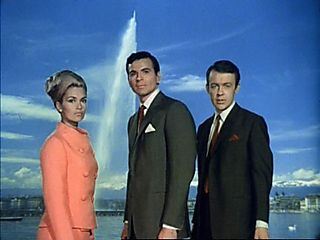Film and Television
Major Brilliant

I have been loving writer/producer Earl Pomerantz's brilliant and hilarious blog posts about the development of his sitcom MAJOR DAD. Here's an anecdote he shared about working on the pilot with then-CBS President Kim LeMasters:
Here’s something somebody told me I said once about how TV networks behave: “The first thing they say is the last thing they say.” What did I mean by that? I meant this.
During the “casting approval” process, the president of CBS, Kim (a man) had strongly objected to the casting of Shanna Reed as our leading lady. Universal insisted. We got Shanna Reed.
It is now the night before the filming. What is Kim’s primary “note”, besides that the show doesn’t “ring true” to the spirit of the Marine Corps?
“I can’t tell you what to do,” he began, before telling us what to do, “but if I were you, I would close down production and look for another leading lady.”
The Audience for Canadian Shows is Tiny
It doesn't take many viewers to make a show #1 on the CBC in Canada. The series THE BORDER was the highest rated "off-ice" Canadian series last week with 765,000 viewers. The guest appearance of BATTLESTAR GALACTICA's Grace Park is credited with the spike in viewership. According to the TV Feeds My Family blog, there are YouTube videos that are getting bigger audiences than most Canadian series.
The rest of CBC's week went like this: Air Farce Final Flight: 710,000, Dr. Who: 701,000, Rick Mercer Report (repeat): 637,000, Heartland: 625,000, The Tudors: 567,000, Fifth Estate: 526,000, Nature of Things 486,000, Little Mosque on the Prairie: 464,000, This Hour Has 22 Minutes (repeat): 428,000 and, dwindling well below sustainability, Sophie: 280,000.
Among the other Canadian-produced fare last week, CTV's So You Think You Can Dance Canada waltzed off with 1,160,000 viewers (another 888,000 watched the results show Thursday night). Next was ol' reliable Corner Gas at 1,066,000. Global's The Guard was down to 385,000. Well back, making Sophie look like CSI, was Degrassi: The Lost Generation at 222,000 viewers–across Canada. There are more people in Saskatoon!
UPDATE: The previous headline on this post ("The TV Audience in Canada is Tiny") was miss-leading so I have changed it to more accurately reflect what I was trying to say. American shows draw the lion's share of episodic TV viewers in Canada as they do in many European countries.
How NOT To Get People to Watch Your Show
Insulting your viewers probably isn't the best way to get them to watch your show. But that didn't stop HEROES showrunner Tim Kring from laying the blame for the ratings decline of his show on serialized storylines and the limited intelligence of his audience.
The engine that drove [serialized TV] was you had to be in front of the TV [when it aired]. Now you can watch it when you want, where you want, how you want to watch it, and almost all of those ways are superior to watching it on air. So [watching it] on air is related to the saps and the dipshits who can't figure out how to watch it in a superior way."
A superior way? Why is it "superior" to watch the show on your iPod or your computer instead of on TV? Isn't it a TV show? How does the medium you choose to watch HEROES with make the stories and characters any more or less compelling?
Yes, you can blame technology for siphoning all the smart viewers away from your series. You could try revamping your show so that it becomes the complete opposite of what it was conceived as. Or you could try, you know, not sucking. A story arc or two that doesn't inspire ridicule could go a long way with the saps and dips***s, is all I'm saying. […]Whatever problems Heroes has, the fault lies not in its DVRs but in itself.
UPDATE 11-25-08: Poniewozik reports that Kring has apologized for his comments in an open letter to fans, which reads in part:
I was making the point that these platforms now offer a superior way to watch the show (without commercials, with extra content, commentary, at the audience's convenience, etc.) … It was a boneheaded attempt at being cute and making a point. Instead, it turned out to be just plain insulting and stupid. I know now how it sounded, but I truly never meant to suggest anything bad about our audience.
Unaired Batgirl Pilot
Here’s an unaired pilot for a proposed “Batgirl” spin-off from BATMAN.
They are The Champions

Variety reports that Guillermo Del Toro and Christopher McQuarrie are teaming up to write United Artists' movie version of the 1960s UK series THE CHAMPIONS, which starred Stuart Damon as one of three spies who develop super powers after crashlanding in the Himalayas and being rescued by a secret civilization. Tom Cruise and Paula Wagner will produce.
Huh?

I just received the Canadian DVD release of my movie FAST TRACK: NO LIMITS…but I don't understand the teaser line on the cover:
What does that mean? How is that supposed to entice me into renting/buying the DVD?
The movie is now also available on DVD in China, Japan , Australia , Thailand and Spain... as well as many other countries (but not yet in the U.S.). You can also find DVDs of FAST TRACK on Ebay.


